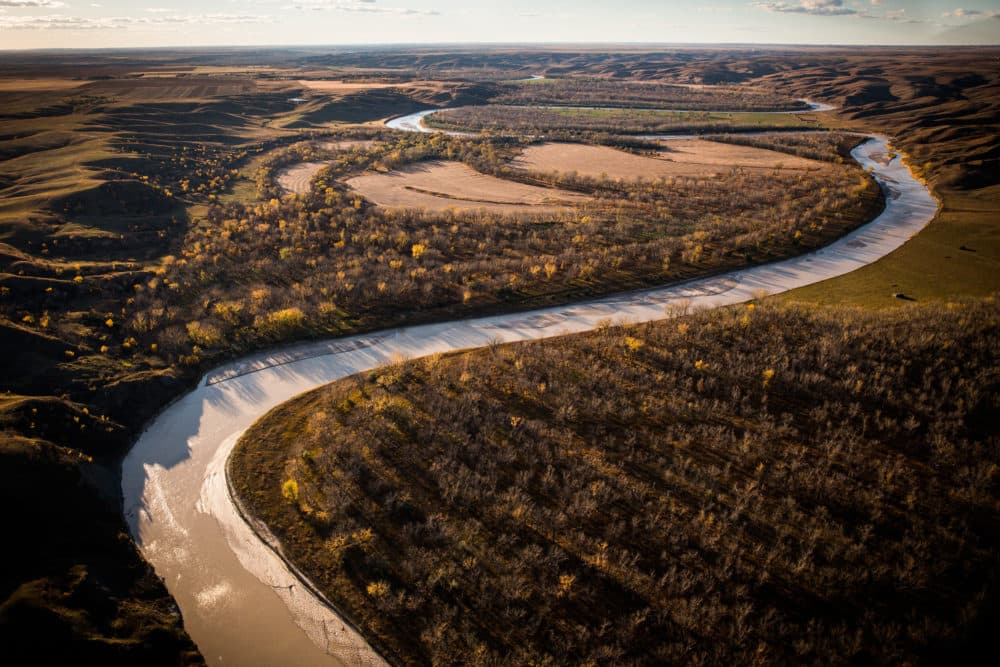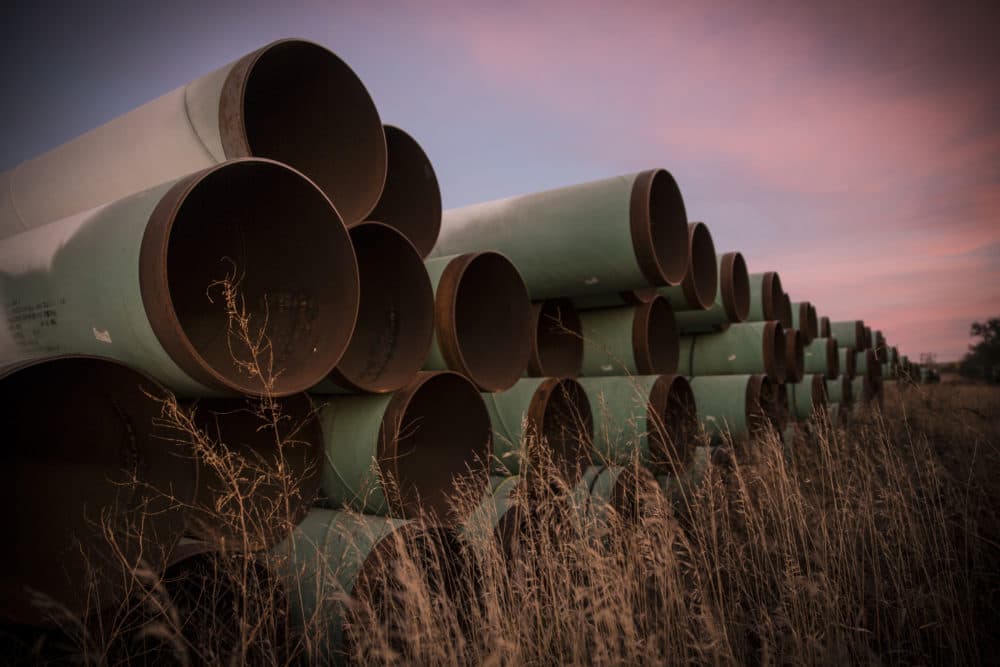Advertisement
Commentary
By Killing Keystone XL, Biden Sets The Tone For His Climate Policy

The Keystone XL pipeline is dead. Again.
On his first day in office, President Joe Biden rescinded the federal permit that allowed the pipeline to cross the border from Canada. Barack Obama had halted the project in 2015, a month ahead of the Paris climate accord, only to see Donald Trump revive it during his first week as president.
The message Biden sent on Wednesday was unambiguous — under his administration, the fossil fuel industry won’t enjoy the pampering and lax oversight it did under the previous one. By canceling Keystone XL, he’s putting Big Oil on notice that he’ll block construction of fossil fuel infrastructure that could undermine the nation’s steady transition to carbon-free energy over the next three decades.
Biden — and his impressive climate cabinet -- are serious about decarbonizing the economy, and it’s a head-snapping reversal of U.S. climate policy.
Killing Keystone XL sets the tone. The project was conceived in 2008 to transport gooey bitumen about 1,200 miles, from the Athabasca oil sands of Alberta through Montana, South Dakota and Nebraska. Its history is marked by legal challenges, political maneuvering and protests in Washington, Ottawa and many points along the pipeline’s proposed path.
Biden -- and his impressive climate cabinet -- are serious about decarbonizing the economy, and it’s a head-snapping reversal of U.S. climate policy.
Among the prominent activists who fought against Keystone XL was Debra White Plume of the Oglala Lakota, who died just days after Biden was elected. Dedicated to protecting her tribal nation, she was arrested at the White House while protesting the pipeline in 2011. White Plume was motivated in part by climate change concerns but even more so by the immediate danger that the project would have posed to native land and water.
Bold Nebraska, a group founded by celebrated activist Jane Kleeb, brought attention to the pipeline’s hazards to the Ogallala Aquifer, a vast groundwater source relied on by millions for drinking water and by High Plains agriculture for irrigation. The pipeline posed a dual threat — potential oil spills as well as critical depletion due to extended droughts caused by rising global temperatures.
But the most egregious environmental devastation tied to Keystone XL is found at its origin, in Alberta’s tar sands. The site is “the world's largest industrial project,” where the bitumen is extracted from open-pit mines.
The mining operation has created a smoking hellscape in tracts of boreal forest, which provides habitat for threatened wildlife and is a natural carbon sink. Processing bitumen requires an immense amount of fresh water that drains into toxic tailings ponds. And Alberta’s tar sands region has the most carbon-intensive oil production in North America.

TC Energy, the owner of Keystone XL, had hoped to rescue the pipeline’s disastrous public image by pledging $1.7 billion to ensure that it used only renewable energy to operate the hundreds of pumping stations along the pipeline’s route. According to the Wall Street Journal, the firm proposed to “eliminate all greenhouse-gas emissions from operations by 2030,” which likely meant pouring money into renewable energy projects and purchasing carbon offsets.
But that plan was only putting green lipstick on a pig of a pipeline — it would have done nothing to limit ecological damage or reduce emissions when the bitumen was ultimately refined and burned.
TC Energy’s desperate greenwashing came about during hard times in the oil market, where the pandemic has crushed demand, and also in the pipeline business, which has suffered stunning setbacks over the past year. In July, a consortium of power producers canceled the Atlantic Coast Pipeline due to “legal uncertainties,” which alludes to the persistent challenges from environmental groups along with growing public pressure to make the shift to renewable energy.
With the millstone of the Trump years now lifted, Biden should seize the opportunity to cancel other fossil fuel infrastructure projects...
And crucial financing for capital-intensive fossil fuel development is getting much harder to come by. The New York Times reported that global financial institutions were increasingly wary of being associated with dirty oil sands projects. Activists have created pressure campaigns to shame investors and insurers who underwrite big oil and gas projects. And the federal auction of oil leases in the ecologically-sensitive Arctic National Wildlife Refuge attracted scant interest from the oil majors.
Biden takes office as the popular approval of solar and wind energy is on the rise, and the inevitable decline of fossil fuels is gradually taking hold in the national imagination. In this context, the shutting down of Keystone XL slides comfortably into the window of political feasibility.
With the millstone of the Trump years now lifted, Biden should seize the opportunity to cancel other fossil fuel infrastructure projects, most notably the Enbridge Line 3 pipeline in Minnesota.
And as for Keystone XL, it meets a fitting end. The Houston Chronicle reports that the hundreds of miles of pipe already manufactured will likely be sold as scrap.
